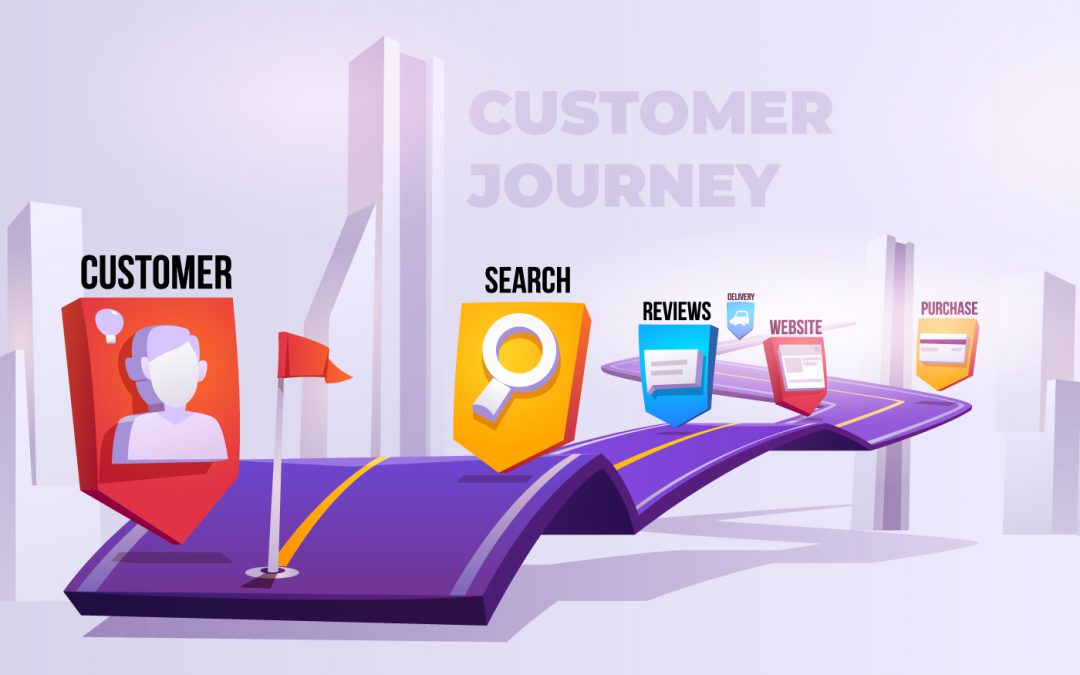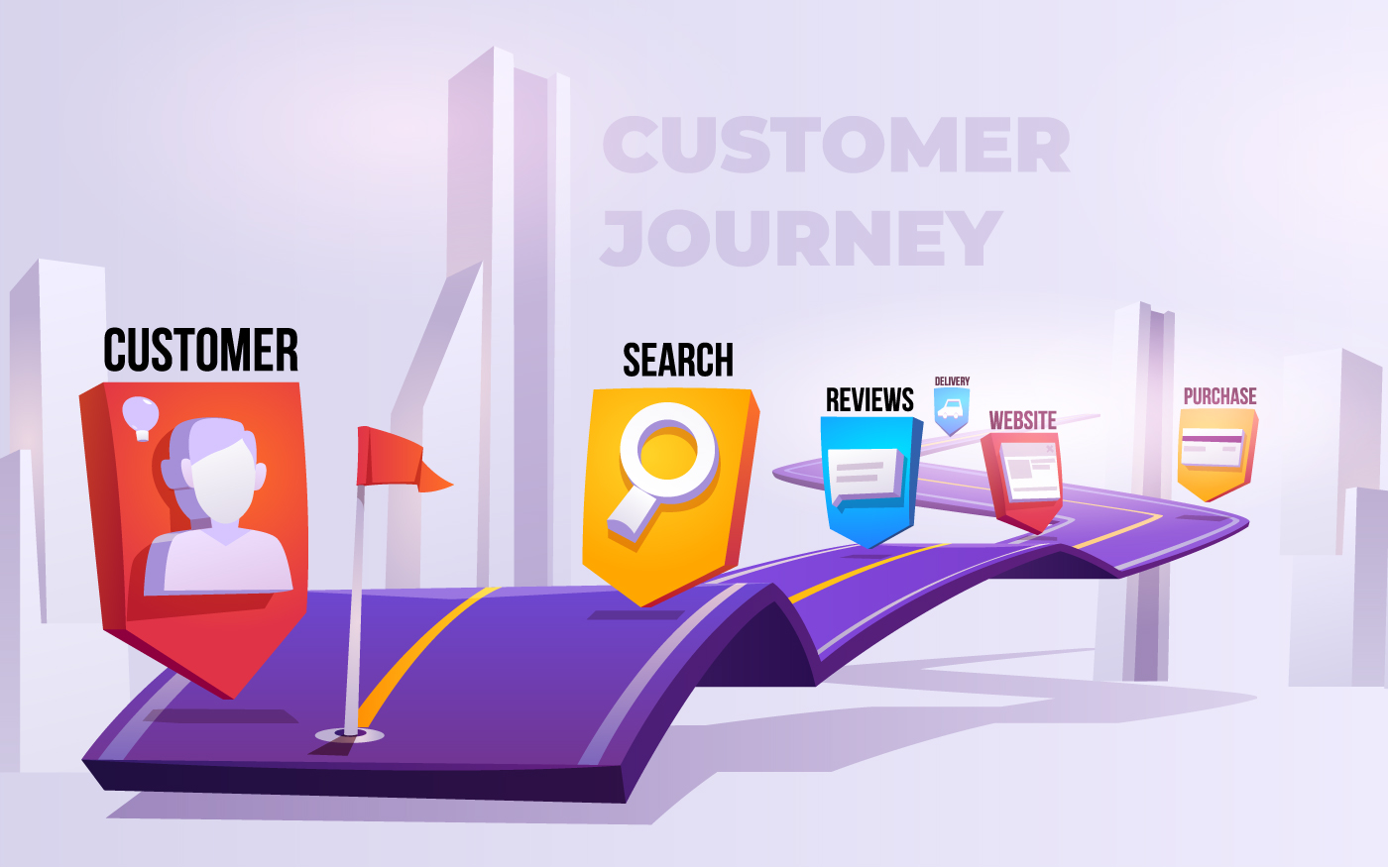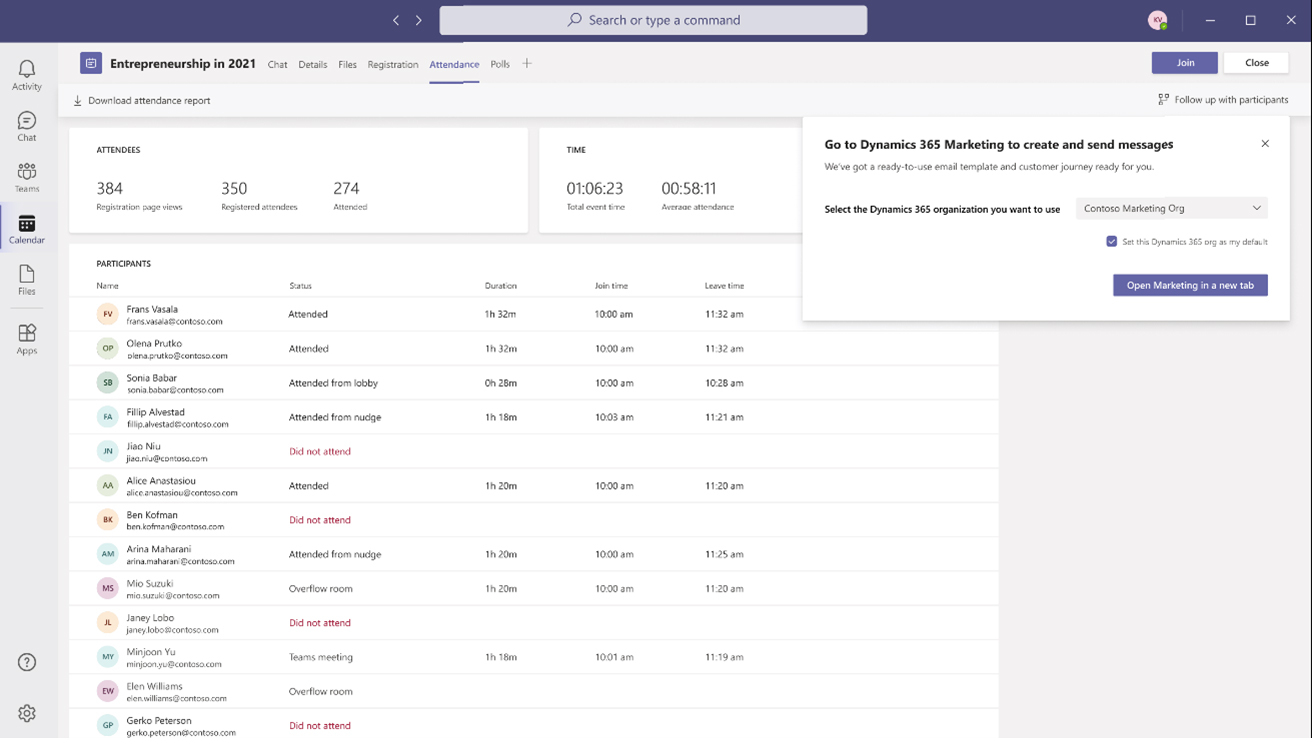No Results Found
The page you requested could not be found. Try refining your search, or use the navigation above to locate the post.


Faced with a historic level of social and business disruption, companies have been forced to respond quickly and strategically to meet the challenge. To help address this challenge, and elevate customer experiences, we are introducing real-time customer journey orchestration capabilities in Microsoft Dynamics 365 Marketing.
Connecting with people has never been more important, and customer expectations have never been higher. Customer tolerance for disjointed experiences, or even worse, tone-deaf communications is unacceptable. Organizations that deliver better end-to-end customer experiences (CX) are taking share. Despite a decade of discussion about the importance of CX, many companies have failed to elevate their experiences to the level desired.
Beyond the human value of great experiences, elevated experiences are critical to driving business value—enabling growth and driving brand equity, preventing churn, and enabling higher marketing and customer engagement return on investment.
Dynamics 365 Marketing is working to revolutionize how organizations address these challenges to enable teams such as marketing, sales, customer success, commerce, or customer service to create engaging and impactful customer-led experiences.
We are announcing real-time customer journey orchestration capabilities in Dynamics 365 Marketing will be released for preview as part of the April 2021 release wave 1 updates in Europe and North America. This landmark innovation brings together the worlds of customer experience and marketing automation and is designed to help businesses:
Plus, commercial Microsoft 365 E3 and E5 customers will get six months of free access to Dynamics 365 Marketing at no additional cost. We’ll have more details on this offer to share soon, along with eligibility details, and we are excited to see you reap the benefits of these solutions together.
Customer journey orchestration helps you make the next great leap in customer experiences: from segment-based marketing campaigns to moments-based interactions, creating a personalized, holistic customer journey for each individual. This enables you to strengthen your relationships at every touchpoint across both digital and physical, breaking down walls between marketing, sales, commerce, and service organizations. Dynamics 365 Marketing responds to customer actions during the journey.

In the highly competitive technology market, HP’s brand is built on its high-quality products and differentiated service. Loyalty is critical to enabling business performance (Customer Lifetime Value, Gross Margin, etc.) and every support call is an opportunity. HP is working to turn support interactions into personalized engagement moments using Dynamics 365 Marketing with customer journey orchestration. This will allow HP to break down longstanding data silos, better engage customers in real-time with the most impactful messaging, and leverage AI-driven recommendations.
“With customer journey orchestration in Dynamics 365 Marketing, our agents will gain a real-time 360-degree view of each customer and their support experience,” explains Brian Johnston, Business Architect, HP. “We’ll be making the most of our customers’ time and treating them with empathy and understanding. It makes HP feel real to the customer, and it makes the customer feel real to HP”
The result will be an enhanced and highly-personalized customer service experience that improves quality of service, builds customer lifetime loyalty, and also saves the company money by shortening the time spent solving problems.
Authoring impactful content quickly and easily is a big challenge. With built-in AI recommendations for content, channels, customer segmentation, and analytics, companies can be sure to deliver the right message. The reimagined email editor helps select and deliver the best image, video, document, or fragment using AI. A new centralized asset library allows you to search, version, manage and use AI to tag your digital assets.
Journey authoring is also assisted by AI with targeted customer segments, channel optimization, and experimentation. As customers engage, the customer journey adapts and responds to interactions with relevant content driving further engagement.
We’re engineering AI throughout Dynamics 365 Marketing to help you create engaging and impactful messages faster. Powerful experimentation capabilities and analytics track progress towards your business objectives, helping you to exceed business goals.
The Campari Group, home to some of the world’s iconic alcoholic spirit brands, knows how to create great brand experiences and is always working to deepen its relationships with customers. To gain a 360-degree customer view and enhance the personalization of its marketing, sales, and customer service efforts, Campari Group deployed Microsoft Dynamics 365 Customer Insights and Dynamics 365 Marketing. With AI-driven recommendations and customer journey orchestration, Campari Group can now personalize real-time marketing messages for maximum impact across all customer touchpoints.
“Customer journey orchestration enables contextually relevant and consistent real-time conversations with every customer across all interaction points,” explains Chad Niemuth, Vice President, Global IT – Marketing and Sales. “We can more precisely align marketing messages for each communication channel to gain the greatest impact. We see the effects in in-store sales and also in e-commerce, which is particularly important during COVID.”
Within weeks, Campari Group connected all the data points in Dynamics 365 Customer Insights and deployed its first email marketing automation campaign against those segments in the United States. Roll-out in the United Kingdom and Australia followed shortly.
The dramatic shift to online meetings and virtual events has made it even more important for event managers to easily use Teams and Dynamics 365 Marketing.
At Microsoft Ignite, we announced new and updated features that enable you to run rich webinars and events, true to your brand with a professional experience for attendees. We also announced the ability of Teams to easily follow up with event attendees with Dynamics 365 Marketing. This allows you to continue connecting with attendees, nurturing them into loyal customers.

Microsoft’s customer data platform, Dynamics 365 Customer Insights, makes it easy to unify customer data, identify high-value customer segments, or those likely to churn. When you combine it with Dynamics 365 Marketing, you can engage customers in a personalized way and in real-time to drive meaningful actions. Seamlessly use segments from Dynamics 365 Customer Insights to target marketing campaigns. Personalize content with rich profile information, and create individual journeys based on customer history and preferences. With the addition of Dynamics 365 Customer Insights and Microsoft Azure Synapse Analytics, you build custom AI models and improve relevancy with advanced segmentation and targeting that can then be brought to life with Dynamics 365 Marketing.
Learning customers’ preferences and sentiment is critical to personalizing engagement. Today, we are also announcing real-time survey capabilities for Microsoft Dynamics 365 Customer Voice that enable you to adapt customer journeys or trigger relevant communications. For example, if a customer is not satisfied with a specific product feature or service, the response can quickly stop marketing campaigns while also notifying an account manager for personalized follow-up.
Together, these connected applications help companies personalize moments that matter across all touchpoints in a customer’s journey and build deeper customer relationships with more meaningful engagement across both digital and physical channels.
Developing highly impactful and personalized experiences across the customer journey requires a fresh approach. We are excited to be working with a number of leading agencies that have expertise in transforming customer experiences to deliver stronger connections to leading brands and measurable business impact.
“VMLY&R is excited to partner with Microsoft, helping empower organizations to reimagine and transform customer experiences. Harnessing the power of AI, data, and insights to create connected customer and brand experiences have never been more important. We look forward to collaborating with Microsoft and the Dynamics 365 team to deliver amazing customer experiences for organizations around the world,” says David Mitchell, Chief Technology Officer, VMLY&R.
Agencies such as VMLY&R (a WPP company) and Kin + Carta use creativity, technology, and culture to create experiences that engage customers one-on-one across every touchpoint from marketing through service, across both digital and physical experiences.
“As people have more and more ways to interact with brands, it’s never been more vital to deliver a consistent, seamless experience for customers and to look towards the future to find innovative ways to meet their needs,” says Rob McGowan, Managing Director of Edit, part of the Kin+Carta connective. “It’s this challenge that we believe the new customer journey orchestration features in Dynamics 365 Marketing are ideally placed to answer.”
To learn more about how your organization can elevate your customer experiences, visit the Dynamics 365 Marketing webpage and contact us to explore all capabilities in Dynamics 365 Marketing.
Win customers and earn loyalty
The page you requested could not be found. Try refining your search, or use the navigation above to locate the post.